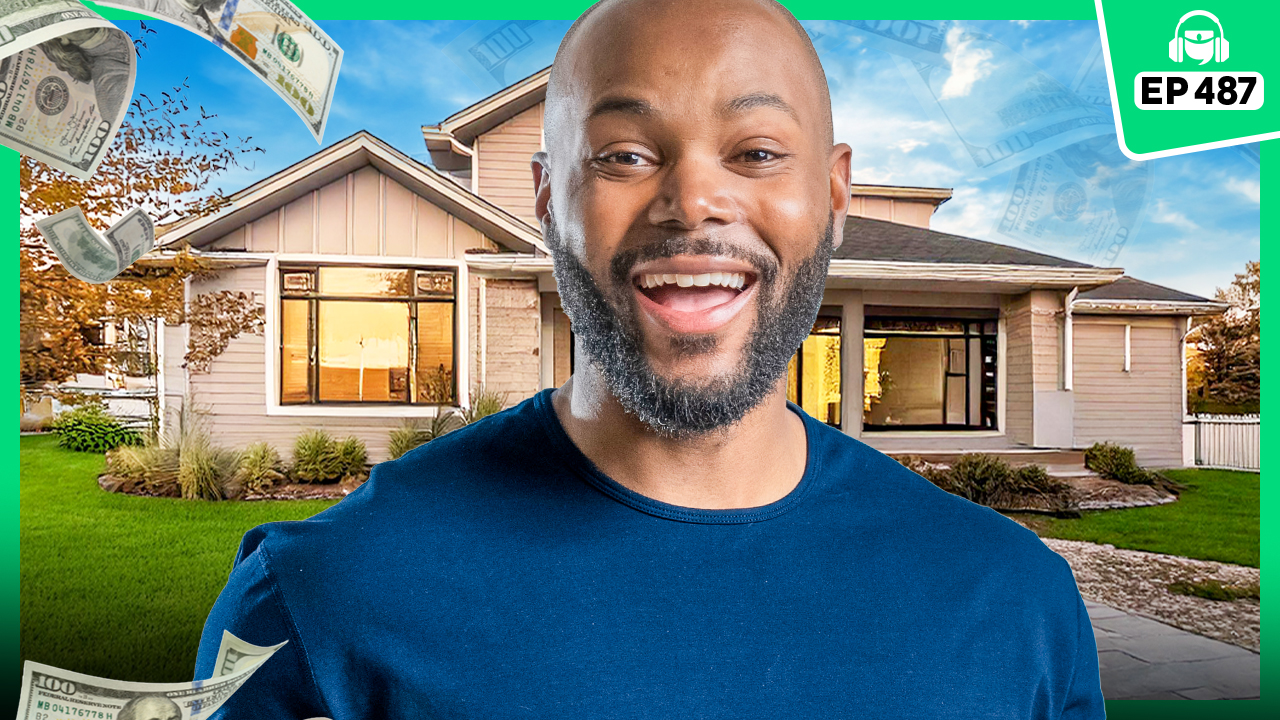Whether you’re actively shopping for a new home or just curious about what different neighborhoods offer, there’s no better way to start your research than by attending open houses. Open houses are excellent tools that serve many purposes: finding a house you’d like to buy, dipping your toes into the housing market to see what you like, or getting a feel of what your money can get you in the area you are looking to buy.
Open houses are nothing to be scared of, and they can be excellent learning experiences, but if you’ve never gone to an open house before, you might feel a bit intimidated. We’ll walk you through the process and teach you how to go to an open house like someone who does it every weekend.
Ready to start shopping for a home?
A top-rated agent can help you negotiate a great deal, spot red flags, and introduce you to homes that best suit your needs. Find an amazing real estate agent in your area using HomeLight today.
Step 1: Know why you’re going in (and be in alignment)
There are many reasons why someone might attend an open house, and it’s important for you to understand why you are going.
Define your open house mission:
- Did you just move to a new area and want to look at what’s available, hoping to buy eventually?
- Are you looking in an area where you don’t currently live to see what types of homes are in that market?
- Are you a current homeowner who wants to see what’s trendy in the sales market?
- Are you looking for your forever home (or your “for now” home)?
- Are you simply checking out homes similar to yours to get new design inspiration?
All of these are totally acceptable reasons to attend an open house, but you’ll want to make sure you’re clear in your own mind about what you’re hoping to get out of your open house experience — and that friends, partners, or family members attending with you are aware of your intentions and on the same page with you.
Step 2: Talk to an agent first if you’re interested in buying
If your open house goal isn’t to buy soon, then there is no reason to involve an agent. Otherwise, an agent can give you valuable insight about different homes you can’t get elsewhere, while helping you access open houses you wouldn’t be able to find on your own.
Agents are people, too, and often, they know each other. Tell your agent what open houses you plan on attending, and in many cases, they will be able to tell the agent listing the open house to expect you. This will show the seller that you are serious about buying and that you already have an agent representing you.
If you plan in advance, your agent may be able to attend the open house with you, if that’s what you want. If you see an open house while taking a walk and decide to go spontaneously, it’s unlikely that your agent can drop everything and come — but let them know you went anyway.
Top Portland, Maine, agent Holly Mitchell, who has 14 years of open house experience, says, “If you are already working with an agent, it’s always great to see if your agent can meet you at the open house. If they can’t, always tell them where you’re going — and be specific, because your agent can reach out to the listing agent.”
Mitchell adds that you can always sign the guestbook with your agent’s name instead of your own: “If a buyer wants to attend but they don’t want to have all their information out there to get emails or calls, it’s perfectly appropriate to sign your agent’s name. That way, the seller’s agent can follow up directly with your agent.”
Step 3: Get preapproved for a mortgage if you want to buy
This is another step you can go ahead and skip if you are not looking to buy at the moment. But if you are, then getting preapproved for a mortgage while you are still attending open houses will ensure you’re only spending time touring homes that you can afford to buy.
If you do get preapproved for a mortgage but are not totally sure what you want, it’s a great idea to attend open houses within the price range you are approved for to see what you will get for your money in the area (or areas) you’re looking at.
Step 4: Decide how to organize your notes
No matter why you’re going to an open house, you probably want it to be a learning experience. To remember what you learned, you’ll want to take notes.
There’s no doubt that the homes will start to blur together if you don’t have a way to keep track of your experiences. Take notes, photos, and videos if you like, and highlight the home’s specific features that make it stand out. Document what you loved or didn’t love about each home after each visit to avoid forgetting your experience.
Step 5: Confer with experts about common red flags
When attending an open house, whether or not you are interested in buying right now, looking for potential damage will help you better understand the home’s price and identify red flags. Local real estate agents, home inspectors, and home contractors can help give you an inside scoop on common issues with homes in your area and their signs.
The big ones to check for typically include:
- Leaks under sinks, sticky windows and doors
- Cracks in ceilings and walls
- Water stains on walls and ceilings
- Evidence of mold or pests
Research any common issues found in homes in the area you’re looking to buy, and find some folks who can educate you on how to find them. An experienced top agent is your best initial resource to spot red flags.
Step 6: Find the open houses you want to attend
Strolling through neighborhoods where you’re interested in finding open houses can make for a fun Saturday, but it’s not the most effective way.
To search for all the best open houses, you can look online at your local multiple listing service (MLS) or on real estate platforms. Check flyers or signs around town, especially at local real estate agencies.
Saturdays and Sundays are popular days for open houses, so if you want to go on several showings, keep your weekend afternoons free.
Step 7: Plan your open house day
When you’ve got a list of houses you’re excited to tour, you’ll need to plan your open house day.
Most open houses are only open for specific time windows, and if you want to hit several, you’ll need to plan which you’re attending first and account for traffic and travel time, too.
Be sure to pay close attention to the time windows so you won’t overbook yourself and miss out on open houses that might just be the one.
Step 8: Dress appropriately
When attending an open house, dress comfortably yet respectfully. Choose smart casual attire and present yourself as a serious buyer. Avoid overly casual outfits like sweatpants or flip-flops. Remember, first impressions matter. Whether you like it or not, agents and sellers will initially judge your level of interest by your appearance.
Even if you’re not looking to buy, smart casual is still appropriate, as it demonstrates respect to the homeowners and the seller’s agent. More importantly, these showings offer networking opportunities that can help you build connections you’ll need when you’re ready to buy. So make yourself presentable.
Step 9: Be prepared to sign in
It is standard practice for open houses to require attendees to sign in. If you think about it, you’d probably want a record of any complete strangers who happened to have access to your house if the roles were reversed.
Many sign-in sheets will include fields for an email address, which you can withhold, but be ready to write down your real name and show an ID.
As we noted earlier, if you are interested in buying, you can provide your agent’s name and email so the listing agent can contact them.
Step 10: Know how to behave
There is a lot of literature out there about open house etiquette, so we’ll just cover the basics here.
- Don’t crowd other buyers and take up too much of the seller’s agent’s time.
- Don’t be a creep. Opening closets and doors to check out storage space is usually fine, but don’t start rummaging through drawers, papers, or personal items.
- Always ask before taking pictures, and follow house rules. Open house rules can include requests to remove shoes, put on booties, or wear a mask if asked.
- It’s common for agents to provide refreshments at an open house, but don’t expect to be fed, and don’t bring in outside food.
- Most importantly, consider how you would like people to act if you were hosting an open house. Be respectful of the seller’s wishes.
Step 11: Ask lots of questions
Agents are there to help, and even if you aren’t actively shopping, they typically don’t mind answering your questions, so ask away. After all, this house might be a great fit for someone you know.
Agents know details about the house that might not be visible even at a thorough glance. Mitchell says, “Agents will have property disclosures, and they should have copies available at open houses that you can look at while you walk around the home to learn about it.”
This property disclosure, which is mandated by state laws, will have many details about the house, including information about the age of systems in the home, the condition of the roof, any known plumbing issues, and much more.
Beyond asking about the property, you should be able to learn about these essentials:
- What is the asking price, and has it fluctuated?
- How long has the property been on the market?
- How many offers have been made?
- What are the property taxes and any homeowners association (HOA) fees?
- What is the neighborhood like?
- Are there any recent upgrades or repairs made to the home?
- Why is the seller moving? What’s their timeline?
Get Your List of Open House Questions!
When you visit an open house, take this list of 60 questions with you so that you can decide if the home is a hit or a miss.
Enter your email address below:
Step 12: Don’t disclose too much about yourself!
If you are looking to buy, telling the listing agent at the open house your exact budget and why this is the perfect house for you is likely going to backfire if you get to the negotiating stage. Be polite but noncommittal about your opinions, and only talk in general price ranges, not specifics.
Unlike renting, where showings can feel competitive, buying requires a bit more of a poker face to get the right price. Also, don’t get stressed and start disclosing information about how keen you are to buy based on the number of attendees at an open house.
Remember, people go to open houses for all kinds of reasons, including just for fun. Rest assured that even a crowded open house might not get swamped with offers, though it does depend on the market.
Step 13: Wait until you leave to discuss the house with fellow attendees
You don’t want the agent to report back to the seller that you loved or hated the place, so wait until you’re in a more private environment to debrief with your friends and fellow attendees. Go have a latté and mull over your pros and cons in private.
Whatever your open house needs are, don’t be afraid to head in. As long as you are respectful of the seller’s wishes and you stay mindful of the listing agent’s time, you’ll have a great opportunity to add to your home research. Partner with an experienced buyer’s agent as you explore the market. And you never know — you may end up closing on that home after the opening!
Header Image Source: (Sophie Nito / Unsplash)



















 English (US) ·
English (US) ·